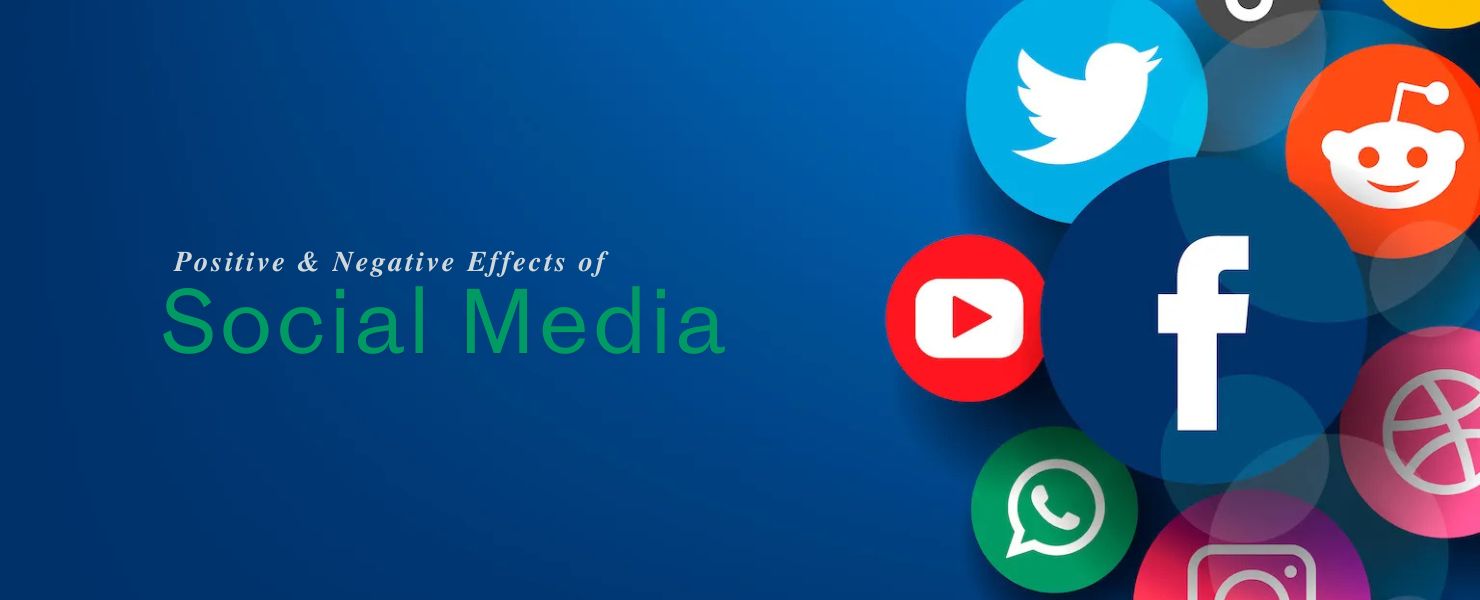Social media has revolutionized communication, entertainment, and access to information. It connects people worldwide, but it also raises concerns about mental health and well-being. Tough, we know about the pros and cons of social media but let’s explore the positive and negative effects of social media, including its impact on mental health, along with a balanced perspective.
The Positive Effects of Social Media
Building Connections and Communities
Social media bridges distances, enabling connections with friends, family, and like-minded individuals. For example:
- Platforms like Facebook and Instagram allow people to share life updates.
- Niche groups and forums provide support and belonging for those with shared interests.
Positive Effects of Social Media on Mental Health
- Emotional Support: Online communities provide a safe space to share struggles and seek advice.
- Reduced Loneliness: Virtual interactions help combat feelings of isolation.
- Awareness Campaigns: Social media spreads mental health awareness and reduces stigma.
10 Positive Effects of Social Media
- Enhanced Learning Opportunities: Platforms like YouTube and LinkedIn offer free learning resources.
- Networking: Social media facilitates professional connections and job opportunities.
- Creativity Boost: Content creation inspires art, music, and storytelling.
- Real-Time Information: Stay updated on news and trends.
- Global Connectivity: Build relationships across borders.
- Brand Building: Entrepreneurs use platforms to grow their businesses.
- Community Engagement: Encourage social and environmental change.
- Self-Expression: Share personal stories and opinions.
- Health Awareness: Influencers promote fitness and healthy habits.
- Entertainment: Access to endless content, from videos to memes.
The Negative Effects of Social Media
Mental Health Challenges
While social media offers benefits, excessive use can harm mental health. Consider these points:
- Comparison Trap: Seeing curated, idealized content can harm self-esteem.
- Cyberbullying: Harassment online affects emotional well-being.
- Sleep Disruption: Late-night scrolling interferes with rest.
10 Negative Effects of Social Media
- Addiction: Constant scrolling leads to reduced productivity.
- Anxiety and Depression: Social pressure contributes to mental health struggles.
- Misinformation Spread: Fake news can lead to panic or confusion.
- Privacy Concerns: Personal data misuse is a growing issue.
- Relationship Strain: Miscommunication online can hurt relationships.
- Unrealistic Standards: Edited photos distort beauty ideals.
- Time Wastage: Hours spent online detract from real-life activities.
- Echo Chambers: Limited viewpoints discourage diverse thinking.
- Physical Health Neglect: Sedentary behavior can harm fitness.
- Over-commercialization: Ads and sponsored posts overwhelm users.
Tips for Using Social Media Wisely
- Set Time Limits: Allocate specific hours for social media use.
- Curate Your Feed: Follow uplifting accounts that promote positivity.
- Prioritize Offline Relationships: Strengthen in-person connections.
- Verify Information: Check credible sources before believing or sharing news.
FAQ
Social media offers emotional support, reduces loneliness, and raises awareness about mental health issues.
Excessive use can cause anxiety, depression, and lower self-esteem due to comparison and cyberbullying.
Yes, platforms like YouTube and LinkedIn provide free educational content, boosting knowledge and skills.
Set daily usage limits, disable notifications, and engage in offline hobbies.
Overuse or miscommunication can strain relationships. Prioritize face-to-face interactions to maintain balance.
Conclusion
Social media offers significant benefits but comes with notable challenges. By understanding its impact and using it responsibly, you can enjoy the positives while minimizing the negatives. The key lies in moderation and mindful engagement.

